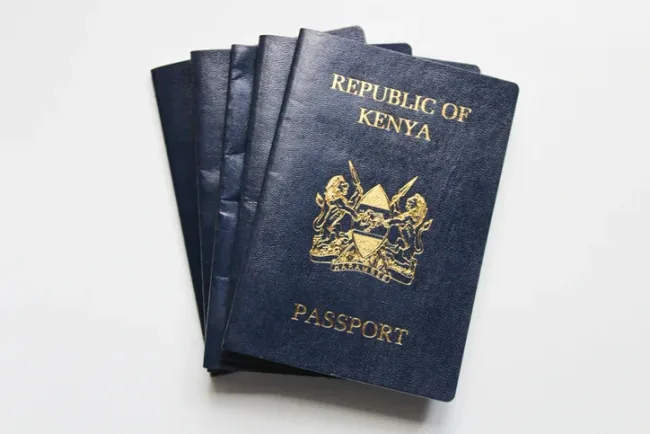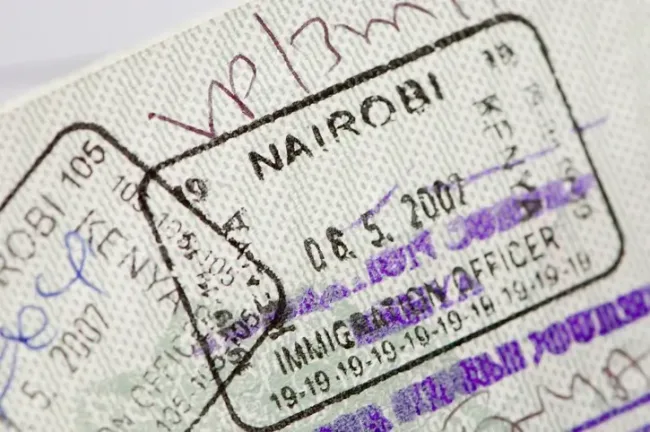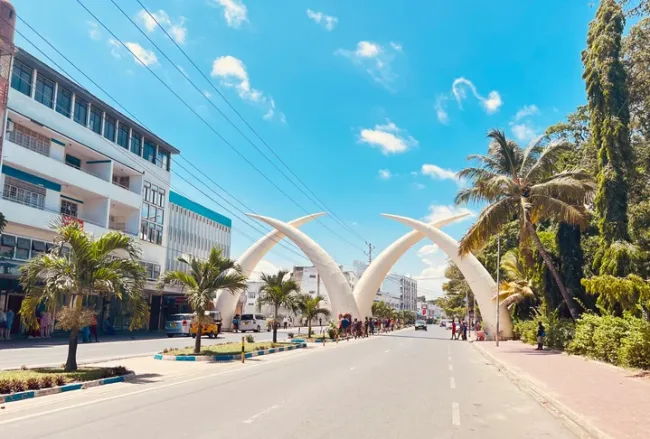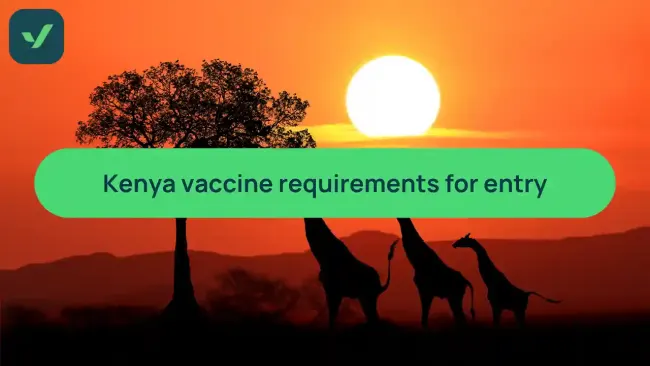
Kenya
Welcome to Kenya
Traveling to Kenya? You may need a visa – find out if you do, which type, and how to apply so you can get the paperwork out of the way and focus on your trip.

What’s a Kenya ETA and who’s it for?
Who’s the Kenya ETA for?
This Kenya ETA replaces the former Kenya eVisa, and is mandatory for all visitors, including children, who intend to travel to the Republic of Kenya.
Who’s not eligible for a Kenya ETA?
Citizens of East African Community (EAC) states are exempt from the ETA requirements for Kenya:
-
Democratic Republic of the Congo
-
Burundi
-
Kenya
-
Rwanda
-
Somalia
-
South Sudan
-
Uganda
-
Tanzania
What’s the purpose of a Kenya ETA?
Tourism and business. How long can you stay with a Kenya ETA?
You can visit Kenya once with the ETA and stay for up to 90 days.
What are the Kenya long-term visa options?

Kenya offers several long-term visa options for various purposes, such as employment, study, business, and residence. Here are some of the most common long-term visas:
-
Work/Residence Visa: For individuals who intend to work or reside in Kenya for an extended period. This includes expatriates employed in Kenya, investors, and those joining family members.
-
Student Visa: Issued to foreign nationals who intend to undertake studies in educational institutions in Kenya, including universities, colleges, and schools.
-
Diplomatic Visa: For diplomatic passport holders traveling to Kenya on official duty or representing their governments.
-
Special Pass: A temporary permit allowing a person to engage in specific activities like short-term employment, research, or internships for a short duration, usually not exceeding three months.
-
Research Visa: Specifically for individuals intending to conduct research or academic work in Kenya, often required to be affiliated with a local institution or organization.
-
Retirement Visa: Aimed at foreign nationals who wish to retire and live in Kenya, typically requiring proof of sufficient funds or income.
-
Medical Visa: For those seeking long-term medical treatment in Kenya's healthcare facilities.
-
Cultural/Artistic Visa: For artists, performers, or cultural experts engaging in activities related to their field in Kenya.
-
Volunteer Visa: For individuals working with registered organizations or NGOs in Kenya.
-
Dependent Visa: For family members of foreign nationals residing in Kenya on a work or student visa.
At iVisa, we currently don’t offer these visas, but you can find out more from the Kenyan government website.
Staying healthy in Kenya: Here’s what you need to know
Healthcare facilities and standards in India can vary significantly depending on the location and the type of facility. Here's what travelers should know.
Make sure to stay updated on routine vaccines
-
Ensure your routine vaccines, such as measles, mumps, rubella (MMR), diphtheria, tetanus, and pertussis (DTaP), are up-to-date.
-
A yellow fever vaccination certificate is required for all travelers aged 9 months or older arriving from a yellow fever-endemic country or if you plan to visit certain parts of Kenya.
-
Keep updated with Kenya's COVID-19 requirements, such as quarantine, testing, or vaccine certificates, through your airline or the Kenya government website.
-
Malaria is prevalent in Kenya; consult your healthcare provider for appropriate antimalarial medication.
Medical facilities
-
Medical facilities can vary in quality; consider travel insurance that covers medical evacuation.
-
Nairobi and Mombasa have better-equipped hospitals and medical services than rural areas.
-
Carry a basic medical kit with bandages, antiseptics, and any necessary prescription medications.
Health insurance
We’d always recommend taking out health insurance before you travel anywhere from any destination.
All the major cities in Kenya will have private medical care, but it’s expensive. You should choose travel insurance with high medical limits.
Contact your insurance provider before traveling to make sure you have the right level of coverage.
Other things to consider:
-
Trip cancellation, delay, and interruption benefits.
-
Medical expenses and medical evacuation benefits.
-
Baggage coverage.
Things to be aware of when visiting Kenya
Keep an extra eye on the following to keep healthy and safe during your trip to Kenya:
1. Food and water: Drink bottled or purified water, and be cautious with street food to avoid gastrointestinal issues.
2. Crime: Exercise caution in urban areas, especially at night, and be vigilant against petty theft.
Medication for personal use
Follow these tips to bring into Kenya some over-the-counter medicines:
-
Declare all medications: Report all medication for personal use to customs authorities.
-
Original packaging: Always keep medicines in their original containers and in transparent bags in your hand luggage.
-
Prescription or doctor's letter: Present the medical prescription issued by your doctor or other competent authority in English.
-
Check for restrictions: Call Kenya's embassy to verify that all of your prescription(s) are legal to bring with you.
-
Quantity aligned with itinerary: Bring only a reasonable quantity that aligns with the duration of your stay to avoid complications.

 Australia ETA Online
Australia ETA Online
 United Kingdom ETA
United Kingdom ETA
 India Tourist eVisa
India Tourist eVisa
 Canada ETA Visa
Canada ETA Visa
 Turkey eVisa
Turkey eVisa
 Egypt eVisa
Egypt eVisa
 Singapore SG Arrival Card
Singapore SG Arrival Card
 Indonesia eVoa Visa
Indonesia eVoa Visa
 Aruba ED Card
Aruba ED Card


